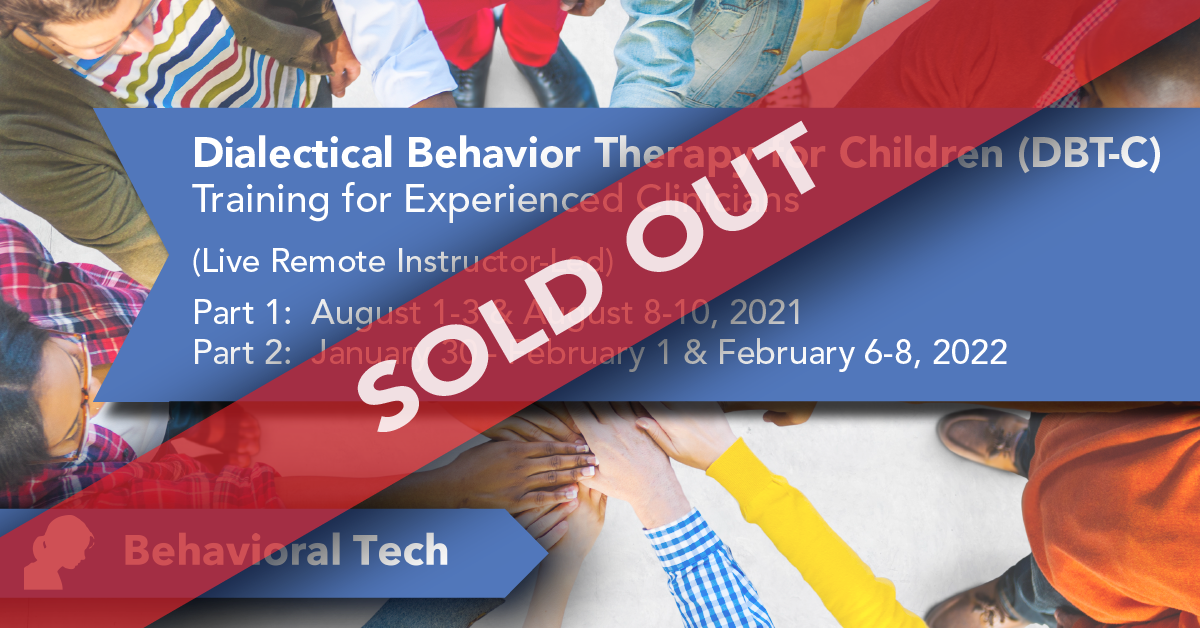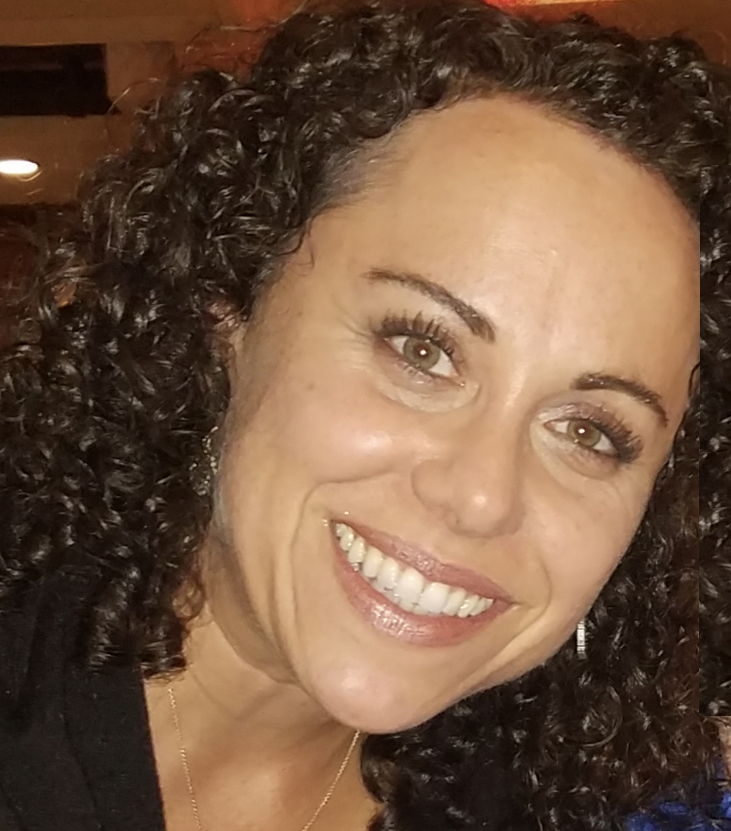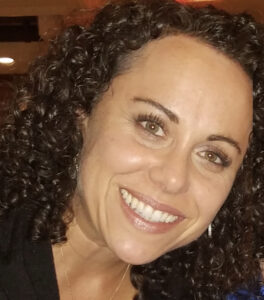To learn more about the types of training and consultation that BTECH offers, visit our Training Catalog here.
Interested in a training that is sold out? Please join our Waiting List so we can contact you as we schedule future events.

- This event has passed.
Dialectical Behavior Therapy for Children (DBT-C) Training for Experienced Clinicians (Sold Out!)

Level 4
Live, Remote, Instructor-led
Part 1: August 1 – 3, 2021 and August 8 -10, 2021 (Sunday through Tuesday sessions)
Part 2: January 30 – February 1, 2022 and February 6 – 8, 2022 (Sunday through Tuesday sessions)
Trainer: Francheska Perepletchikova, PhD
Presenter: Kimberly Vale, LCSW-R
Training Description
Chronic irritability and difficulty with self-control may negatively affect children’s emotional, social, and cognitive development and are predictive of personality disorders, dysphoric mood, substance and alcohol abuse, suicidality and non-suicidal self-injury in adolescence and adulthood. DBT-C provides clinicians with specific tools for the child’s caregivers, the child, and the child’s extended environment to address severe emotional dysregulation and associated behavioral dyscontrol related to the above concerns. Dialectical Behavior Therapy for pre-adolescent children (DBT-C) aims to facilitate adaptive responding by teaching coping skills and encouraging caregivers to create a validating and change-ready environment.
In a randomized control trial of 7 – 12-year-old children with Disruptive Mood Dysregulation Disorder, those who received DBT-C had higher treatment attendance and significant reductions in the problems being studied.
This training is intended for clinicians invested in learning DBT-C to a high standard to better implement the treatment in their setting. It includes content on child individual counseling, didactics on emotions, parent training, and DBT-C skills. The training format includes lecture, group exercises, demonstrations, homework assignments, exams/quizzes, and consultation. It includes a total of 48 training hours. Clinicians who are members of established DBT consultation teams may apply individually.
The training is conducted in two parts. Part 1 is conducted over six days (4.5 hours per day), followed by 6 months of home study and monthly consultation via remote platforms. In Part 1, lectures and small group exercises are used to teach DBT-C strategies in depth.
Between Parts 1 and 2 participants consolidate and apply their learning with the help of practice assignments. During this time, teams design and begin implementing their own DBT-C program or integrate DBT-C into an ongoing treatment setting. Monthly 1-hour consultation is provided by DBT-C experts to teams that are configured for the purpose of the training. Consultation is designed to help build or integrate DBT-C into practice settings, improve understanding of the material, and enhance effectiveness of program implementation.
Part 2 is conducted over another six days (4.5 hours per day). In Part 2, clinicians receive training on Core Problem Analysis (CPA). CPA is an assessment and intervention model that addresses DBT-C secondary targets. Further, each team presents their work and receives expert consultation on specific cases. Teams are provided with further practice on application of techniques and identification of strategies.
Learning Objectives
- Primary Objective: As a result of this training participants will be able to provide DBT with children.
Part 1 – Learning Objectives
- Determine who might benefit from DBT-C.
- Convey evidence for model to clients & stakeholders.
- Describe how DBT-C was developed from standard DBT.
- Describe the biosocial model for severe emotion dysregulation and corresponding behavioral dyscontrol in preadolescent children.
- List the treatment hierarchy of DBT-C.
- Structure DBT-C to meet the required functions of treatment.
- Help parents understand the dialectical dilemmas of parenting.
- Help parents learn Behavior Change Model and create a change-ready environment.
- Introduce parents to behavior modification techniques.
- Help parents implement behavior management plans.
- Help parents create a validating environment.
- Help parents understand and overcome their difficulties with implementing techniques.
- Teach parents and children to engage in problem solving.
- Teach parents and children how to do cognitive restructuring.
- Conduct behavioral analysis with children.
- Teach parents and children to understand emotion.
- Describe the DBT-C Emotion Change Model.
- Teach DBT-C skills training.
- Structure the DBT-C program to fit your setting.
Part 2 – Learning Objectives
- Formulate a DBT-C case conceptualization.
- Describe DBT-C secondary targets.
- Describe the three core senses.
- Describe Core Problem Analysis (CPA).
- Describe how CPA differs from other therapeutic models.
- Describe main functions of CPA.
- Describe CPA Emotion Model.
- Describe 10 Principles of conducting CPA.
- Help parents understand factors that increase vulnerabilities in core senses.
- Describe interventions to decrease vulnerabilities to the sense of self-love.
- Describe interventions to decrease vulnerabilities to the sense of safety.
- Describe interventions to decrease vulnerabilities to the sense of belonging.
- Teach parents to implement techniques to decrease their own vulnerabilities in core senses.
- Teach parents to implement techniques to decrease vulnerabilities in core senses in their children.
- Describe adaptive and maladaptive CPA profiles.
Schedule
Please note that all times are listed in Eastern Daylight Time.
| 8:30 – 9:00 AM | Log-in and Test Set-up |
| 9:00 – 10:15 AM | Session 1 |
| 10:15 – 10:30 AM | Break |
| 10:30 – 11:45 AM | Session 2 |
| 11:45 AM – 12:00 PM | Break |
| 12:00 – 1:30 PM | Session 3 |
Trainers
Francheska Perepletchikova, PhD
 White Plains, NY (United States)
White Plains, NY (United States)
 Francheska Perepletchikova, Ph.D. is a DBT-Linehan Board of Certification Board Certified Clinician is an Assistant Professor of Psychology at the Department of Psychiatry at Weill Cornell Medical College. Dr. Perepletchikova received her B.A. degree at St. John's University and graduated with a gold medal for the highest academic average. Dr. Perepletchikova received graduate training in two disciplines -- developmental and clinical psychology. She obtained an M.A. in Developmental Psychology from Teachers College, Columbia University in 1996 and received Ph.D. in Clinical Psychology from Yale University Department of Psychology in 2007 (with the James B. Grossman Best Dissertation Prize).
During her internship and post-doctoral training at Yale University School of Medicine, Dr. Perepletchikova gained expertise in Dialectical Behavior Therapy (DBT). She obtained intensive and advanced intensive trainings in DBT with Dr. Linehan. Further, Dr. Perepletchikova has been established as able to deliver DBT with adherence and calibration as a reliable DBT adherence rater by Behavioral Research and Therapy Clinics at the University of Washington. In 2015, she became a BTech trainer. In 2016 Dr. Perepletchikova became a DBT-Linehan Board of Certification Board Certified Clinician.
Dr. Perepletchikova has a long-standing interest in emotion regulation, trauma-related psychopathology, depressive and anxiety problems, suicidality and self-harm behaviors. Her research focuses on childhood psychopathology, psychotherapy development, and evaluation of treatment integrity in treatment outcome research. As a faculty at Yale University and Weill Cornell Medicine, Dr. Perepletchikova developed Dialectical Behavior Therapy for children and conducted several randomized clinical trials to empirically validate this model. This line of research has been funded by the grants from NIMH, NRSA and private foundations. Dr. Perepletchikova authored 25 journal articles and book chapters for the book Treatment Integrity in Treatment Outcome Research (2009). She has conducted over 60 lectures, presentations and workshops around the world.
As a clinician, Dr. Perepletchikova is currently in private practice. She is a Founding Director of the Youth-Dialectical Behavioral Therapy Program that specializes in treating children with severe emotional and behavioral dysregulation and training clinicians in the approach.
Francheska Perepletchikova, Ph.D. is a DBT-Linehan Board of Certification Board Certified Clinician is an Assistant Professor of Psychology at the Department of Psychiatry at Weill Cornell Medical College. Dr. Perepletchikova received her B.A. degree at St. John's University and graduated with a gold medal for the highest academic average. Dr. Perepletchikova received graduate training in two disciplines -- developmental and clinical psychology. She obtained an M.A. in Developmental Psychology from Teachers College, Columbia University in 1996 and received Ph.D. in Clinical Psychology from Yale University Department of Psychology in 2007 (with the James B. Grossman Best Dissertation Prize).
During her internship and post-doctoral training at Yale University School of Medicine, Dr. Perepletchikova gained expertise in Dialectical Behavior Therapy (DBT). She obtained intensive and advanced intensive trainings in DBT with Dr. Linehan. Further, Dr. Perepletchikova has been established as able to deliver DBT with adherence and calibration as a reliable DBT adherence rater by Behavioral Research and Therapy Clinics at the University of Washington. In 2015, she became a BTech trainer. In 2016 Dr. Perepletchikova became a DBT-Linehan Board of Certification Board Certified Clinician.
Dr. Perepletchikova has a long-standing interest in emotion regulation, trauma-related psychopathology, depressive and anxiety problems, suicidality and self-harm behaviors. Her research focuses on childhood psychopathology, psychotherapy development, and evaluation of treatment integrity in treatment outcome research. As a faculty at Yale University and Weill Cornell Medicine, Dr. Perepletchikova developed Dialectical Behavior Therapy for children and conducted several randomized clinical trials to empirically validate this model. This line of research has been funded by the grants from NIMH, NRSA and private foundations. Dr. Perepletchikova authored 25 journal articles and book chapters for the book Treatment Integrity in Treatment Outcome Research (2009). She has conducted over 60 lectures, presentations and workshops around the world.
As a clinician, Dr. Perepletchikova is currently in private practice. She is a Founding Director of the Youth-Dialectical Behavioral Therapy Program that specializes in treating children with severe emotional and behavioral dysregulation and training clinicians in the approach.
Additional Faculty & Presenters
Kimberly Vale, LCSW-R

 Kimberly Vale, LCSW-R, is a clinician at New-York Presbyterian Westchester Behavioral Health Center and maintains a private practice in Westchester County, New York specializing in Dialectical Behavioral Therapy and Cognitive Behavioral Therapy. At New-York Presbyterian, Kimberly gained expertise in the adaptation of Dialectical Behavior Therapy for pre-adolescent children (DBT-C) with severe emotional and behavioral dysregulation. Kimberly was trained by the program developer Francheska Perepletchikova, Ph.D. and Kimberly provided direct treatment, supervision and teaching in the outpatient psychiatry department. Kimberly continues to lead a DBT team in the outpatient psychiatry department of New York Presbyterian and provides lectures in schools and the community, and supervises therapists in DBT and parent management interventions. In 2018, Kimberly became a presenter at Behavioral Tech (BTech) and continues to participate in the DBT-C worldwide dissemination.
Kimberly graduated Cum Laude with a B.A. in Psychology from University of Arizona and received her graduate degree with high honors from New York University Silver School of Social Work.
Kimberly Vale, LCSW-R, is a clinician at New-York Presbyterian Westchester Behavioral Health Center and maintains a private practice in Westchester County, New York specializing in Dialectical Behavioral Therapy and Cognitive Behavioral Therapy. At New-York Presbyterian, Kimberly gained expertise in the adaptation of Dialectical Behavior Therapy for pre-adolescent children (DBT-C) with severe emotional and behavioral dysregulation. Kimberly was trained by the program developer Francheska Perepletchikova, Ph.D. and Kimberly provided direct treatment, supervision and teaching in the outpatient psychiatry department. Kimberly continues to lead a DBT team in the outpatient psychiatry department of New York Presbyterian and provides lectures in schools and the community, and supervises therapists in DBT and parent management interventions. In 2018, Kimberly became a presenter at Behavioral Tech (BTech) and continues to participate in the DBT-C worldwide dissemination.
Kimberly graduated Cum Laude with a B.A. in Psychology from University of Arizona and received her graduate degree with high honors from New York University Silver School of Social Work.
Prerequisites
All participants must have completed a Comprehensive Level 3 DBT Training to attend this level 4 training.
Required to be read prior to start of Part 1:
- Linehan, M. M. (1993). Cognitive Behavioral Treatment of Borderline Personality Disorder. New York: Guilford Press.
- Linehan, M.M. (2015). DBT® Skills Training Manual (2nd ed.). New York: Guilford Press.
- Linehan, M.M. (2015). DBT® Skills Training Handouts & Worksheets (2nd ed.). New York: Guilford Press.
Additional reading before Part 2 (only one required):
- Kazdin, A. (2012). Behavior modification in applied settings (7th ed.). Waveland Press, Inc.
- Kazdin, A. (2008). Parent Management Training: Treatment for Oppositional, Aggressive, and Antisocial Behavior in Children and Adolescents (1st ed.). Oxford University Press.
Study Resources
- Linehan, M. M. (1993). Cognitive Behavioral Treatment of Borderline Personality Disorder. New York: Guilford Press.
- Linehan, M.M. (2015). DBT® Skills Training Manual (2nd ed.). New York: Guilford Press.
- Linehan, M.M. (2015). DBT® Skills Training Handouts & Worksheets (2nd ed.). New York: Guilford Press.
- Kazdin, A. (2012). Behavior modification in applied settings (7th ed.). Waveland Press, Inc.
- Kazdin, A. (2008). Parent Management Training: Treatment for Oppositional, Aggressive, and Antisocial Behavior in Children and Adolescents (1st ed.). Oxford University Press.
Attend
Please fill out the Online Application to complete your registration.
Technical Requirements
Our Online Portal (powered by Thinkific) will be used to host the live Zoom sessions and share supplemental materials. To test your internet connection, camera, and microphone, you can use Zoom’s testing application.
Continuing Education
To receive Continuing Education Credits, participants are required by the CE Boards to meet all criteria listed below:
- Attend 100% of the Part 1 and Part 2
- Complete the Post-Event Evaluation surveys, and
- Pass the Post Assessments with a score of 70% or higher
Behavioral Tech cannot offer partial credit. Please remember to login through the online platform to document your attendance. Continuing Education verification will be emailed to you 4-6 weeks after the last day of the Part 2 training.
If this offering is approved for Continuing Education or Continuing Medical Education, BTECH verifies that it meets the requirements for the number of hours for each discipline listed below. If there are no listings, this offering does not provide continuing education credits. Licensing and continuing education requirements vary by jurisdiction (state/province/country). Please contact your regulatory authority to verify if this course meets your licensing or continuing education requirements. Please contact CE@behavioraltech.org if you have any additional questions.
Alcohol and Drug Abuse Counselors (NAADAC)
Behavioral Tech will apply to NAADAC – the Association for Addiction Professionals, Provider #77431. Behavioral Tech, LLC is responsible for all aspects of the programing. You will receive a letter via email documenting your attendance upon successful completion of the activity. The allotted CE hours for this activity = 48.
Mental Health Counselors (NBCC)
Behavioral Tech is approved as a NBCC-Approved Continuing Education Provider (ACEP™), ACEP No. 5885. Programs that do not qualify for NBCC credit are clearly identified. Behavioral Tech, LLC, is solely responsible for all aspects of the program. Behavioral Tech will email you a letter documenting your attendance upon successful completion of the activity. The allocated clock hours for this activity = 48.
Psychologists (APA)
Behavioral Tech is approved by the American Psychological Association to offer continuing education for
psychologists. Behavioral Tech maintains responsibility for the program and its content. Behavioral Tech will email you a letter documenting your attendance after successful completion of the program and homework. The number of hours Behavioral Tech has allocated within APA guidelines = 48.
Psychologists – NY
Behavioral Tech is approved by the New York State Education Department’s State Board for Psychology as an approved provider of continuing education for licensed psychologists, #PSY-0063. Behavioral Tech will email a certificate of attendance upon 100% completion of this activity. The total contact hour allocated for this activity = 48.
Social Workers- WA
Behavioral Tech will apply to the NASW, Washington State Chapter, Provider Number 1975-166, to offer continuing education for Certified Social Workers. Behavioral Tech will email a certificate of attendance upon 100% completion of this activity. The hours of CE allocated for this activity = 48.
Social Workers – NY
Behavioral Tech is approved by the New York State Education Department’s State Board for Social Work as an approved provider of continuing education for licensed social workers, #0040. Behavioral Tech will email a letter documenting attendance to participants with 100% completion of the program and homework. The hours allocated for this activity = 48.
Nurses (online training) – ACCME
Behavioral Tech is accredited by the Accreditation Council for Continuing Medical Education to provide continuing medical education for physicians. Nurses should only claim credit commensurate with the extent of their participation in the activity. Continuing Medical Education is accepted by the ANCC for nursing certification renewal. The maximum AMA PRA Category 1 Credits™ designated by Behavioral Tech for this activity = 48.
Psychiatrists (online training) – ACCME
Behavioral Tech is accredited by the Accreditation Council for Continuing Medical Education to provide continuing medical education for physicians. Physicians should only claim credit commensurate with the extent of their participation in the activity. The maximum AMA PRA Category 1 Credits™ designated by Behavioral Tech for this activity = 48.
Not finding the training you’re looking for? Check out our services for agencies and systems to learn if we can bring a training to you!